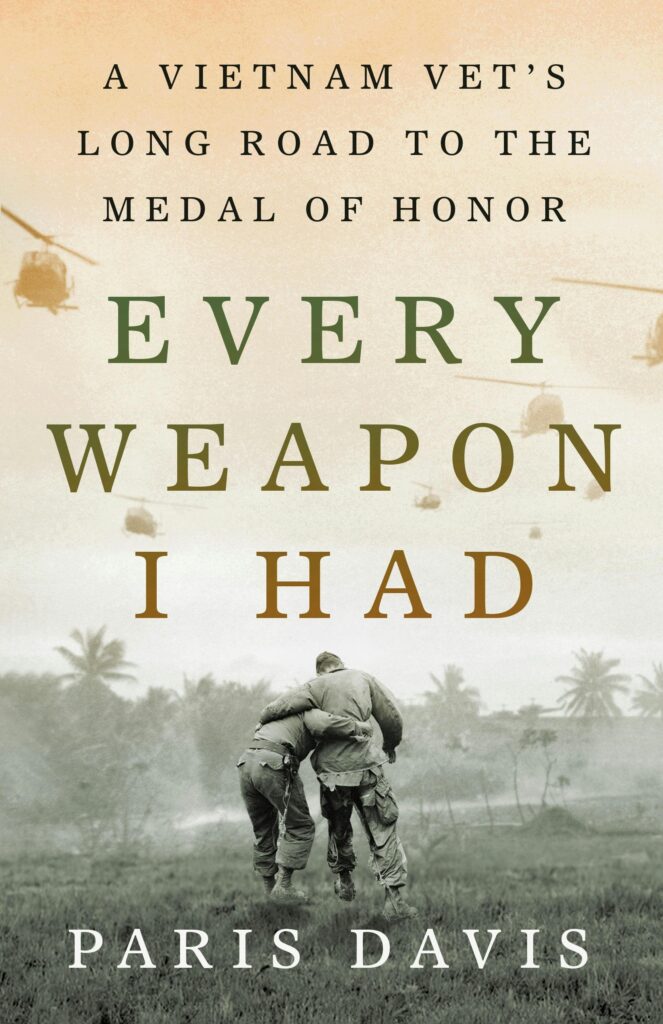By Paris Davis with Theo Emery.
New York: St. Martin’s Press, 2025.
ISBN 978-1-250-38765-3. Photographs. Notes. Index.
Pp. 256. $30.00.
Colonel Paris Davis’s account of his life is much more than the story of the Medal of Honor alone. Davis tells the story of an American who grew up in Ohio, graduated from Southern University, and through the Reserve Officers Training Corps, became an Army officer in 1959. He completed Airborne and Ranger schools, grew up with the duties most junior officers have, deployed overseas, volunteered for and completed Special Forces training, and earned his beret.
During a Special Forces-led operation in Vietnam with indigenous troops Davis had trained, his unit encountered a much larger enemy force than anticipated. The battle lasted over twelve hours with multiple casualties, including himself and several other Special Forces soldiers. He refused to leave the battlefield, even after a direct order to evacuate from Binh Dinh, until all his wounded men were rescued. That was in 1965. Two separate recommendation packets were submitted to Army authorities recommending Captain Davis for the Medal of Honor, but both disappeared. Davis wondered what happened, but he did not serve his country for medals.
Davis was also a loving husband, father, lifelong reader, understanding leader, and faith follower. He was acutely aware of the civil rights turmoil the United States was experiencing when he deployed to Vietnam; he chose to excel in everything he did as a professional soldier (with or without recognition), an example to follow for fellow soldiers. One passage stands out: Davis was selected to attend the Naval War College in Newport, Rhode Island. In addition to his strenuous studies, he coached basketball and soccer in the fall and spring; he also agreed to oversee the 205th Birthday of the U.S. Army. That kind of drive and responsibility (at the time Davis was a lieutenant colonel) speaks volumes.
After retiring in 1985 after twenty-six years of service, Colonel Davis spoke to friends and officials, and through them learned of the lack of documentation of his packets for the Medal of Honor. They all suspected the packets were “lost” due to prejudice. A volunteer team reconstructed the packet, including new affidavits, with hundreds of meetings, calls, and correspondence with Pentagon decision-makers and others for nearly a decade. The recommendations included affidavits signed by then Master Sergeant Billy Waugh, a legend among the Special Forces community, who sadly did not survive long enough to see the group’s efforts succeed. It was finally staffed and approved in 2023. President Joseph R. Biden awarded Davis the Medal of Honor on 3 March 2023.
This is the tale of an Army officer who was overlooked in his Medal of Honor recommendations because of prejudice at the time of the event, because he was black, during the prime civil rights era in this country. He was a Special Forces officer, noted for doing his duty and going above and beyond, saving his fellow soldiers under fire and upholding the highest traditions of the service. That should have been enough to properly honor him, not ignore him.
Master Sergeant Jack Crossman, USA-Ret.
Huachuca City, Arizona
